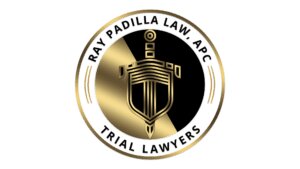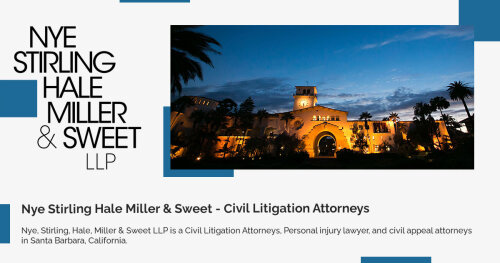Best Toxic Mold Lawyers in California
Share your needs with us, get contacted by law firms.
Free. Takes 2 min.
Or refine your search by selecting a city:
List of the best lawyers in California, United States
About Toxic Mold Law in California, United States
Toxic mold refers to mold growth that poses health risks to occupants of a property, usually due to certain mold species that release harmful mycotoxins. In California, toxic mold issues commonly arise in residential buildings, rental units, workplaces, and schools, mainly due to water intrusion or poor maintenance. Legal matters related to toxic mold often involve property owners, tenants, landlords, contractors, and insurance companies. California has specific laws and regulations that address mold exposure, disclosure, and remediation, making it crucial for affected individuals to understand their rights and responsibilities.
Why You May Need a Lawyer
If you are dealing with toxic mold in a property, seeking legal advice can be crucial. Here are some situations where a lawyer is often needed:
- You are suffering from health problems believed to be caused by toxic mold exposure at home or work
- Your landlord refuses to repair mold problems in your apartment or rental property
- You suspect that a seller or landlord failed to disclose mold problems before you moved in
- You are a property owner facing lawsuits or complaints about mold
- Your insurance company has denied your claim for mold damage repairs
- You are involved in disputes about who is responsible for mold remediation costs
Legal expertise is especially important because evidence, health documentation, insurance policy details, and specific state and local laws can all play a major role in toxic mold cases.
Local Laws Overview
California is a national leader when it comes to mold-specific laws and regulations. Some of the most important aspects include:
- Toxic Mold Protection Act (TMPA): Enacted in 2001, the TMPA provides guidelines and standards for assessing and remediating toxic mold. The law requires the California Department of Public Health to set permissible limits for indoor mold exposure and outlines responsibilities for landlords, property owners, and contractors.
- Landlord and Tenant Responsibilities: Under California Civil Code section 1941.1 and section 1942.1, landlords must ensure rental properties are habitable, which includes being free from hazardous mold. Mold contamination that affects habitability or health is considered a violation.
- Disclosure Requirements: California law requires landlords and sellers to disclose known mold issues that could impact health to tenants or buyers before entering into a lease or sale agreement.
- Remediation Standards: Contractors performing mold remediation in California must comply with state guidelines to ensure the safe removal of mold and prevent further contamination.
- Local Ordinances: Some cities and counties in California have additional rules about mold inspections, remediation, and tenant rights.
Because laws regularly update and cases can involve other intersecting issues like personal injury or insurance coverage, consulting a local attorney is highly recommended.
Frequently Asked Questions
What health problems can toxic mold cause?
Health effects can range from mild allergy-like symptoms to severe neurological or respiratory issues, depending on sensitivity, mold type, and exposure duration. Common symptoms include coughing, sneezing, headaches, skin irritation, and exacerbation of asthma.
What are my rights as a tenant if I find mold in my California rental?
You have the right to a habitable living environment, which means your landlord must address significant mold problems. If your landlord fails to fix the issue after being notified, you may be able to withhold rent, pay for repairs and deduct the cost, or even terminate your lease, but you should seek legal advice before taking any action.
Do landlords have to test for mold in California?
Landlords are not required to test for mold proactively, but they are required to address water leaks and visible mold that impact habitability and must disclose known mold before a lease or sale.
How do I prove that mold is making me sick?
Document your symptoms with medical evaluations and keep records of all interactions with your landlord about mold. A qualified professional can inspect the property and conduct air and surface testing to confirm the presence and type of mold.
Is my landlord responsible for removing mold caused by my actions?
If a tenant’s behavior, such as failing to ventilate properly, causes mold growth, the tenant may be partly or fully responsible for remediation costs. However, if mold results from leaks, structural issues, or external factors, the landlord is generally responsible.
Can I sue my landlord for health problems due to mold?
Yes, if you can prove that your landlord knew or should have known about hazardous mold and failed to address it, resulting in your health problems, you may have grounds to file a lawsuit for damages.
How much time do I have to file a lawsuit about toxic mold in California?
The statute of limitations varies. For property damage, it is generally three years from the date you discover the problem. For injury or personal harm, it may be two years. Speak to a lawyer for specifics relating to your situation.
Are there mold-safe levels set by California law?
California law authorizes the State Department of Public Health to establish safe exposure limits for indoor mold, but as of 2024, there are guidelines rather than strict numeric thresholds for all types of molds.
Will homeowners or renters insurance cover mold damage?
Insurance coverage depends on the cause of the mold. Many policies exclude mold damage unless it results from a "covered peril," such as a burst pipe. Review your policy in detail and consult a legal expert if a claim is denied.
Who do I contact if my landlord ignores my mold complaint?
You can reach out to your local housing department, county health department, or code enforcement agency. Legal aid organizations may also assist if you face retaliation or unresolved habitability issues.
Additional Resources
If you are dealing with toxic mold in California, the following resources can provide helpful information or assistance:
- California Department of Public Health - Environmental Health Investigations Branch
- California Department of Consumer Affairs
- Your local city or county Housing or Code Enforcement Department
- Legal Aid Foundations of California (for low-income legal services)
- California Department of Fair Employment and Housing (if discrimination is involved)
- Environmental Protection Agency (EPA) - Indoor Air Quality Section
- California Bar Association (for attorney referrals)
Next Steps
If you need legal assistance with a toxic mold issue in California:
- Document the mold problem thoroughly with photographs, videos, and written communications
- Obtain medical documentation if you experience health effects
- Contact your landlord or property manager in writing about the issue and keep records of all exchanges
- Consult with a local attorney who specializes in landlord-tenant law, personal injury, or property damage related to mold
- Seek guidance from local governmental agencies or legal aid organizations
- Do not stop paying rent or move out without consulting a lawyer, as this may affect your rights
Receiving professional legal advice early can increase your chances of a favorable outcome and help you understand your rights and options under California’s toxic mold laws.
Lawzana helps you find the best lawyers and law firms in California through a curated and pre-screened list of qualified legal professionals. Our platform offers rankings and detailed profiles of attorneys and law firms, allowing you to compare based on practice areas, including Toxic Mold, experience, and client feedback.
Each profile includes a description of the firm's areas of practice, client reviews, team members and partners, year of establishment, spoken languages, office locations, contact information, social media presence, and any published articles or resources. Most firms on our platform speak English and are experienced in both local and international legal matters.
Get a quote from top-rated law firms in California, United States — quickly, securely, and without unnecessary hassle.
Disclaimer:
The information provided on this page is for general informational purposes only and does not constitute legal advice. While we strive to ensure the accuracy and relevance of the content, legal information may change over time, and interpretations of the law can vary. You should always consult with a qualified legal professional for advice specific to your situation.
We disclaim all liability for actions taken or not taken based on the content of this page. If you believe any information is incorrect or outdated, please contact us, and we will review and update it where appropriate.
Browse toxic mold law firms by city in California
Refine your search by selecting a city.















